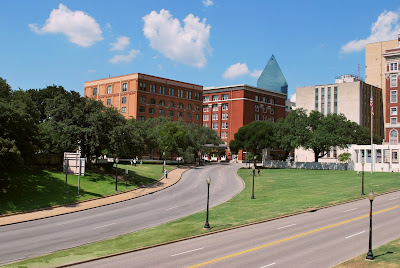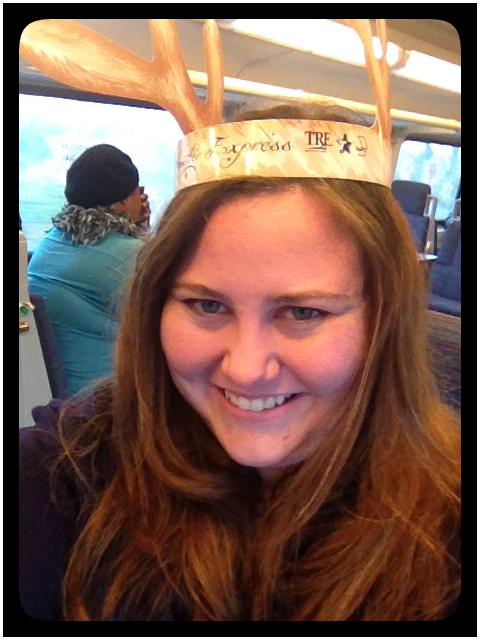Dallas Holocaust Museum: Working to Prevent History from Repeating Itself
I’m going
to be completely upfront and say that I have a personal connection to the
Dallas Holocaust Museum/Center for Education and Tolerance. I began
volunteering there in 2012, and I currently assist with special events as well
as work a monthly shift at the front desk. So let me tell you about why I am so
passionate about this little museum.
Many of
our World War II Veterans and Holocaust Survivors are now in their 80’s and 90’s,
and beginning to die out. As time has distanced us from the events that
occurred during the Holocaust, it has become easier for Holocaust deniers and
conspiracy theorists to spread their lies. Today, in many parts of the world,
people believe that the Holocaust never happened or was exaggerated for some
sort of political gain. For this reason, the preservation of history is more
critical than ever before, and the Dallas Holocaust Museum offers visitors the
chance to connect with the real stories of local survivors.
Founded in
1984 by a group of Dallas-based Holocaust Survivors, the museum was originally
located in the basement of the Jewish Community Center. The museum moved to its
current location on North Record Street in 2005, and this is a temporary space
as the museum raises funds for a permanent building.
Because of
how small the temporary space is, the main section of the museum was designed
to focus on just one day of the Holocaust: April 19, 1943. The reason for this
is because of three major events that occurred on that date that help tell the
bigger picture story of the entire Holocaust.
 |
| Visitors sample chocolate during a recent museum event. |
The museum
archives have more than 550 collections of documents, artifacts, photographs
and oral histories from throughout the Holocaust, which is the time from
January 30, 1933, when Hitler became Chancellor of Germany, to May 8, 1948 (V-E
Day), the end of the war in Europe. Some of the ongoing projects of the museum
are outreach to elderly survivors, collecting survivor testimony (there is a
video that plays for visitors), providing education and resources for local
schools, and promoting an “Upstander” message.
So what’s
an “Upstander” and how does that relate to us today? An Upstander is someone
who takes action when he/she sees someone being bullied or treated unfairly.
The opposite of a Bystander (who sees something happening but doesn’t do
anything about it), Upstanders can take action in many different ways. An
example we use with children is bullying. If you see a classmate being bullied,
you don’t necessarily have to jump into the middle of a fight. But you can tell
a parent or teacher. You can reach out to the kid who is being bullied and make
friends with them. This message of taking action and truly caring about our
fellow people is what I love about the museum.
 |
| Museum visitor listens to audio guide while viewing part of the permanent exhibit |
The museum
is a self-guided audio tour that can take anywhere from 45 minutes to four
hours depending on how many details you choose to listen to, whether you opt to
sit through the Survivor testimony video, and how long it takes to go through
the temporary exhibit room. Survivor and Museum Founder Mike Jacobs
occasionally is there to talk about his book “Holocaust Survivor: Mike Jacobs’
Triumph Over Tragedy.” Groups can also arrange in advance to have a speaker
present for their tour.
The
temporary exhibit rotates every few months. Until August 25, the current
exhibit is the artwork of Rita Blitt. Upcoming exhibits include “The Leo Frank
Exhibit Revisited” from September 1 to December 31, 2013; “Kindertransport:
Memory into History” from January 3 to February 28, 2014; and “Besa: A Code of
Honor” from March 4 to May 30, 2014. More information on each exhibit can be
found by clicking here.
Dallas
Holocaust Museum/Center for Education and Tolerance
211 N.
Record St., Suite 100, Dallas, TX 75202
(214)
741-7500
The museum
is open 9:30 a.m. to 5:00 p.m. Monday through Friday, and 11:00 a.m. to 5:00
p.m. weekends. Admission is $8 for adults, $6 for seniors, $6 for active
military with ID, and $6 for students ages 6-18. Children 5 and under are free.
The audio guide is included in the price of admission.
 |
| Dr. Charlotte Decoster (left) provides wine to patrons during a recent gallery viewing of Rita Blitt's artwork. |




Comments
Post a Comment